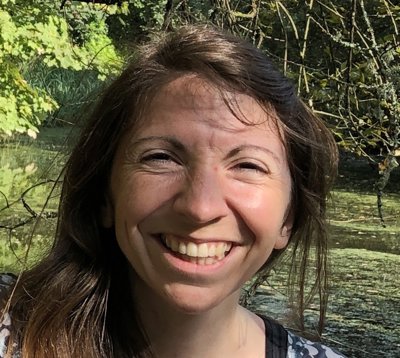
Dr Sarah Bell has been awarded the Gill Memorial Award, for exceptional early career research with a remarkable track record of achievement. We spoke to Sarah about where it all started, memorable projects she's worked on, and her proudest career moments to date.
What are you most proud of in your career to date?
This is a tough question. We’re very good at focusing on the things we could do better at in academia and often forget to stop and reflect on what we’re actually proud of! Weathering the chaos of the pandemic is a big one for me – being there for students, colleagues and family through the uncertainty, pressure, loss and upheaval that have come with it. Trying to recognise when burnout is looming (for me and others), finding the time to pause and re-think patterns of working as much as possible, and lifting people up and celebrating collective moments of achievement! Seeing the lightbulb moments while teaching and supervising research is another huge one for me – it’s so rewarding to be part of those moments, supporting students to develop their ideas and critical thinking.
Where did your interest in geography develop from?
My mum was a geography teacher and spent many a weekend and holiday enthusing about urban settlement patterns, limestone pavements and coastal erosion. So, I was brainwashed from a fairly young age to ask questions and try to understand more about the world around me! When I was at school, it was physical geography – particularly biogeography – that captured my imagination, and I went on to study biology at university. A couple of terms into my degree, I tried to switch to geography, realising that I was missing the integral human dimension. Although I couldn’t change course at that stage, I embarked on an MSc in sustainable development at Royal Holloway afterwards, which really shifted my career trajectory in new directions.
How do you think your field will evolve in the future?
That’s a big question! Thinking specifically about the health geography field, I hope that we will continue to draw on collective knowledges and lived experiences to develop scholarship that recognises and affirms how wellbeing in difference is experienced and expressed. This requires us to push beyond dominant Eurocentric epistemologies to understand the diverse economic, sociocultural and political systems that create injustices in ways that render wellbeing elusive for so many individuals and groups. This is becoming ever more important with the dramatic changes we are seeing globally in the face of climate disruption, which is both compounding and creating new forms of social inequality. Transformative climate action has the potential to address this, but only if genuinely rooted in solidarity, mutuality and intersectional climate justice.
What advice would you give to someone wanting to go into a career in this field?
I’m certainly no expert, having had quite a circuitous route in, but I would encourage people to take the plunge and work across sub-fields and disciplines. It can feel overwhelming at times, especially as you realise the sheer volume of work that is out there, but it’s also really enriching and can open up invaluable collaborations. That said, it’s also important to hold onto your boundaries in a more personal sense. Don’t be afraid to say no; it’s very easy to burn out in academia. It’s the perfect storm of being passionate about your work and working in an environment that, whether intentional or not, takes advantage of that passion to demand ever more from you, in ways that feel difficult to resist because of the underlying precarity of it all. Find the people who respect your boundaries, the people who recognise that you are far more than your publication potential and that enable you to explore and develop your ideas in a sensitive way; take breaks; book holiday (even if you don’t go anywhere); and don’t feel guilty for stepping away – your work and thinking will be clearer further down the line as a result. Finally, never close the door to new careers beyond academia if they will open up opportunities for you to pursue interests and skills in ways that academia closes down.
Is there a particularly memorable project you have worked on or moment in your work you would like to share?
For me, the Sensing nature project and all the brilliant collaborations that it enabled has been the most memorable. Sensing nature started as an in-depth qualitative study exploring how people with sight impairment, living in rural and urban areas of England, describe their experiences with(in) diverse types of nature. This study, funded through the ESRC’s Future Research Leaders scheme from 2016-2018, really challenged the disabling and ableist assumptions that often underpin prominent discourses around nature and wellbeing, folding social justice into the growing momentum to connect people with nature.
The work also emphasised the need for a culture shift, recognising disability as a source of creativity, strength and collective expertise rather than solely an ‘access need’. When considering disability, there is a tendency to focus on visitor access, rooted in the aspiration to create accessible experiences for disabled visitors. This narrow framing tends to medicalise disability and overlooks the role of disabled people as curators of experience – that is, as potential site volunteers, storytellers or education and visitor experience officers and managers. We explored this as part of a wider collaborative project that ran during the pandemic, called Re-storying landscapes for social inclusion. Through the project we worked with a brilliant team to explore new ways of bringing sight impaired volunteers to the heart of visitor experience and interpretation activities at Westonbirt, The National Arboretum. You can read more about the work via the Sensing nature website.
